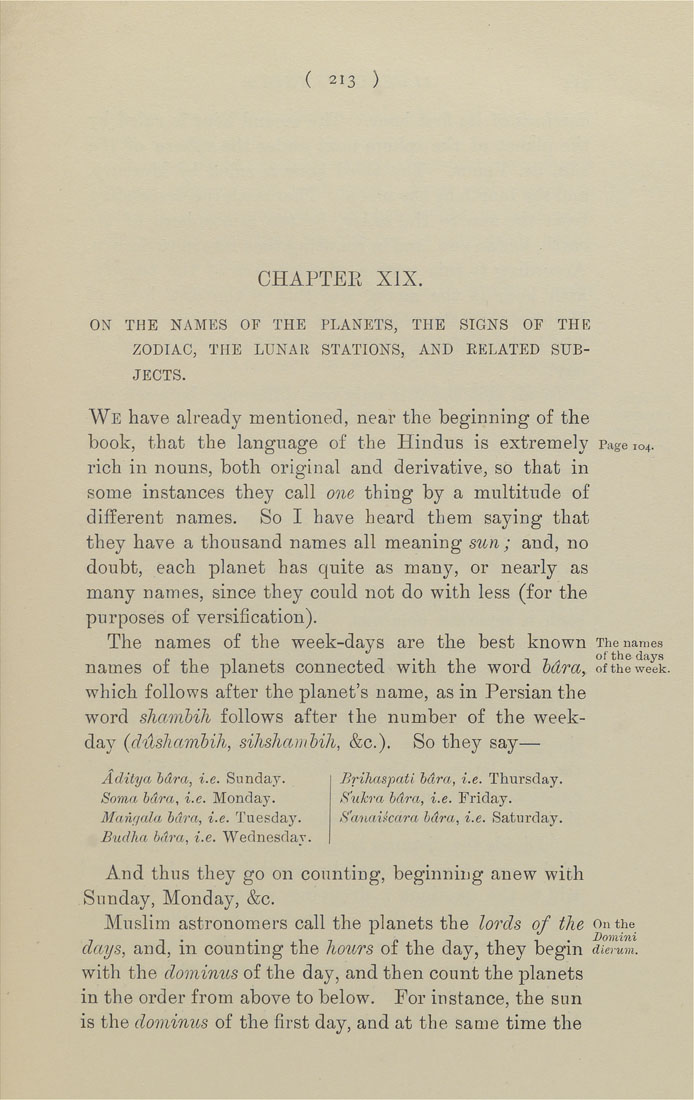Bīrūnī, Muḥammad ibn Aḥmad, Alberuni's India (v. 1)
(London : Kegan Paul, Trench, Trübner & Co., 1910.)
|
||
|
|
|
|
| Page 213 |

( 213 ) CHAPTER XIX. ON THE NAMES OF THE PLANETS, THE SIGNS OF THE ZODIAC, TIIE LUNAR STATIONS, AND RELATED SUB¬ JECTS. We have already mentioned, near the beginning of the book, that the language of the Hindus is extremely Page 104. rich in nouns, both original and derivative, so that in some instances they call one thing by a multitude of different names. So I have heard them saying that they have a thousand names all meaning sun ; and, no doubt, each planet has quite as many, or nearly as many names, since they could not do with less (for the purposes of versification). The names of the week-days are the best known The names names of the planets connected with the word hdra, of the week. which follows after the planet's name, as in Persian the word shamhih follows after the number of the week¬ day (dushambih, sihshamhih, &c.). So the}^ say— Aditya hdra, i.e. Sunday. Soma hdra, i.e. Monday. Mangala hdra, i.e. Tuesday. Budha bdra, i.e. Wednesday. Brihaspati hdra, i.e. Thursday. S'ukra hdra, i.e. Friday. S'anaiscara hdra, i.e. Saturday. And thus they go on counting, beginning anew with Sunday, Monday, &c. Muslim astronomiCrs call the planets the lords of the Onthe days, and, in counting the hours of the day, they begin dievum. with the dominus of the day, and then count the planets in the order from above to below. For instance, the sun is the dominus of the first day, and at the same time the |
| Page 213 |







